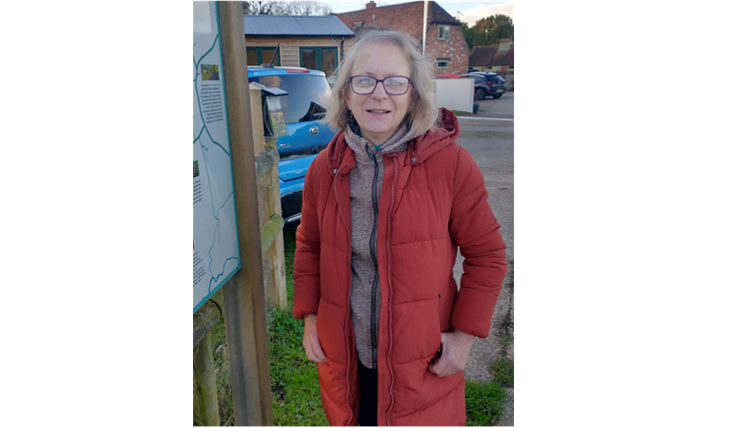Thoughts from influential nature conservationists…
SUE EVERETT
Career highlights
Sue’s career highlights include being chair of BANC (the parent body of ECOS) during one of its most active phases, playing a central role in the formation of the Chartered Institute for Ecology and Environmental Management, and being news editor for British Wildlife magazine for 30 years. Many of her other roles and achievements are noted below.
How do you define nature conservation?
Looking after nature in a ‘habitat first’ sense. Just as important is nature restoration – trying to put back what has been and is still being destroyed. Not just rewilding, but putting back high quality habitats (“Priority Habitats”) and restoring functional ecosystems – rivers and their floodplains being an important example. We also need to address major pressures that continue to impact nature. Examples include stopping pollution at source from sewage and agriculture, our profligate and inefficient use of water, halting soil loss and restoring biodiverse soils, and tackling non-native invasive species. The most important aspect of nature conservation is ultimately how people behave and how human activities are regulated and enforced through policy and law. Unfortunately, we are now at the stage where our actions for nature are likely to be undermined by effects of climate change. I will keep trying though.

What are the main influences (positive and negative) on nature in the world today?
Positive:
- Farmers, land managers, and important institutions who promote and embrace agroecology.
- The champions who speak out for nature and environmental protection. There are lots of them: in politics (very important), with friends in high places (very important), some of the NGO people, and a few celebrities (can’t fail to mention David Attenborough – but it was decades before he was allowed a platform and a voice to speak out).
Negative:
- The idiots in charge of countries who make the decisions about protecting nature or destroying it, or who start unnecessary wars. There are too many in charge who are incapable of or who are opposed to making decisions grounded upon protecting and restoring the environment.
- The corruption of politicians by extractive industries such as agriculture, timber, car manufacture, fishing, hunting, fossil fuels and mining. Examples include:
- the commitment made by Alex Salmond (Scottish National Party former First Minister) to double the output of farmed fish in Scotland, driven by an agreement to supply China.
- how politicians of all colours continue to be cultivated by the farming lobby, and thus fail to regulate agriculture or don’t enforce regulations and laws influencing it, such as impacts of intensive livestock farming on freshwaters and shallow coasts – a issue we were alerted to 30 years ago by the Nature Conservancy Council in its report Nature Conservation and Pollution from Farm Wastes.
- Climate change.
- Population growth.
- Profligate demand for resources by the ‘developed’ world including overconsumption of food, water and minerals, and the throwaway society.
- Intensive agriculture, supermarkets, global food corporations, the ‘farmers’ who pursue profit without care for environmental sustainability or who are just plain ignorant, farming outside the environmental capability of land or landscape.
- Land abandonment with loss of traditional pastoralism in places like the Mediterranean region and in some of Europe’s mountain areas – we are losing huge swathes of wildlife rich internationally important habitat. On the other hand, this is allowing the return of some large mammals in certain situations.
- Global movement of goods leading to the spread of non-native invasive species, from pathogens to plants, invertebrates, fish, mammals and birds.
What’s the good news about wildlife and nature at present, in your view?
In the UK:
- The demise of automatic income support for ‘farmers’ and the recognition that farmers and land managers must deliver ecosystem services. (Although the jury is out on what will actually be delivered.)
- The proliferation of wild beavers and those who have put two fingers up to the ridiculous bureaucracy invented to prevent that. In my local river catchment we now have between 55 and 100 animals living in the wild.
- Large-scale nature restoration projects, such as the Great Fen Project, the expansion of restored wetland in the Somerset Levels and the great projects in the Scottish Highlands, and landowner-led nature recovery initiatives, such as Wild Ken Hill.
- On a smaller scale, the good work of the main landowning NGOs like National Trust, National Trust for Scotland, RSPB, Wildlife Trusts, Butterfly Conservation. But there are also many private landowners who are doing some great stuff on both a small and large scale.
Beyond habitat loss and species decline, what’s your greatest concern in UK nature conservation at present?
- Taking the eye off the ball regarding the sites of highest nature value – the SSSI series. It is vital these are appropriately managed, their nature value maintained and, in many cases restored and that the statutory agencies ensure there is adequate funding, inside and outside agricultural support schemes, to support this.
- Politicians and politics.
- Climate change.
How do you feel about your input (as a volunteer and/or professional) to the subject – what if anything has it achieved and what might you do differently if starting again today?
- As a professional: my work has been driven by my desire to protect and restore nature. I have helped to deliver many improvements on land and farms, including a large acreage of restored and created flower rich grassland and some river restoration. In founding Flora locale, we improved the knowledge of thousands of land managers through advice and training. As the first Development Officer for the Chartered Institute of Ecology and Environmental Management I helped build that organisation which, importantly, gives recognition to ecologists as professionals. That was very important for our profession as ‘influencers’ and being taken seriously by politicians and other professionals, such as planners and engineers. Part of my day job for over 30 years has been writing Conservation News for British Wildlife magazine. What has that achieved? Hopefully, its readership will be better informed about the state of nature and the pressures upon it, and thus be more prepared to take action when they can.
- As a volunteer: I’ve done a lot of voluntary work, from being a Town Councillor to supporting local community groups and being chair of BANC. Currently I am a director of a local landowning body and I have been instrumental in making sure that objectives for nature were agreed and that a Countryside Stewardship agreement was secured. This has been vital. I’m also involved with the local river group and have been scrutinising and highlighting river pollution and have been active in the media on this. Even though the Environment Agency has not prosecuted in most cases, my intervention has led to some changes on some of the most polluting farms. I was recently witness to a prosecution for a major slurry spill in the river. I think my intervention has also stopped further development of hydro schemes on our very challenged river. While involved with BANC in the 1980s I pushed the need for a Habitats Directive and organised an International Conventions Conference and hope that this helped to push the Habitats Directive forward. BANC did some good work in the 80s on ecologists in local authorities, forestry and UK Dependent Territories. The latter led to the formation of the UK Dependent Territories Forum, now the UK Overseas Territories Conservation Forum. I was a co-founder of Plantlife and that organisation has certainly achieved a lot to promote the lot for our wild plants. I am now allocating my time to a landowning NGO and putting together a plan for restoring most of that farm to high nature value habitats. That’s the sort of thing that makes me happy.

If you had a limited budget on nature conservation in Britain, what would you prioritise and why?
I prefer the question: what needs to be done to improve the lot for nature in the UK, recognising it all requires funding? My response to that follows…
- Mandate nutrient budgets for all river catchments and introduce measures that would reduce the number of livestock and take other initiatives to manage livestock waste better. Stop the expansion of intensive livestock farming on land and in the sea and work out what is sustainable and how to achieve that. Funds will be needed to do this work and enforce the plans.
- Provide the Environment Agency, Natural Resources Wales, and Scottish Environmental Protection Agency with the funds to get whole-catchment ground surveys done and detailed plans implemented to restore headwater peatlands, river systems and floodplains, including removing intensive farming and ‘farming up to the riverbank’ off floodplains, barrier removal and river restoration. For multiple benefits.
- Introduce measures that will stop the profligate use of water. These would be cost neutral.
- Stop industrial fishing and set up Marine Protected Areas which actually deliver, include no-take zones. This will require funding for Inshore Fisheries and Conservation Authorities and related bodies.
- Make sure the statutory agencies for nature conservation and environmental regulation are properly funded and that SSSI protection and recovery, and marine protection is fully funded.
- Address the land uses that compete with food growing, to diffuse the anti-nature lobby that is using the food security argument as a weapon. End maize-growing.
- Make sure every local planning authority has in place enough full-time ecologists to cope with the onslaught of development pressures.


